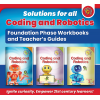Associations
Section 51(2)(b)(i) of the BELA Act requires that parents must undertake to "make suitable educational resources available to support the learner’s learning".
However, one of the registration conditions in S51(2)(a)(iii) is that "the proposed home education programme is suitable for the learner’s age, grade level and ability and predominantly covers the acquisition of content and skills at least comparable to the relevant national curriculum determined by the Minister". This registration condition is however vague that it is practically unenforceable
S(2)(b)(iii) requires that home learners must a assessed "against a standard that is not inferior to the standard determined in the National Curriculum Statement". A standard is something different than contents and skills. One can master different contents and skills, but at the same standard. For example, 3rd year engineering students master different contents and skills than 3rd year sociology students, but they are all at the same standard.
This means that parents must choose a curriculum based on skills and content, but will be assessed against a standard. This means that the BELA Act is not only vague, but also internally contradictory.
How departments will determine whether the skills and contents of a curriculums is "at least comparable to the relevant national curriculum", nobody is able to say. If you confront officials with this, they will say that parents can use any curriculum. How assessors will determine how the standard of a curriculum other than the NCS compares with the standard of the NCS, nobody is able to say.
The internal contradictions in Section 51 — requiring parents to select curriculum content and skills, while requiring assessment only against standards — make the law practically unenforceable. Neither the HOD nor assessors have an objective method to determine whether a curriculum is “comparable” to the national curriculum, and there is no statutory mechanism for defining comparability in a consistent or non-arbitrary way.
Under the constitutional principle of legal certainty, a law that cannot be clearly interpreted cannot be used to penalize families. Therefore, the determination of educational suitability remains where the Constitution places it: with the parent.
No lawful interpretation of Section 51 allows the state to declare a particular home education curriculum “illegitimate”. The parent must choose the curriculum appropriate for their child, and any assessment must be respectful of that educational approach.
Events
Has no connect to show!
Legal & Research
Homeschooling and the law
Home schooling was recognized in 1996 in Section 51 of the SA Schools
+ ViewCentres
Homeschool ABC
Support
Curriculums
Frequently Asked Questions
-
Is home education often used as a smoke screen to hide child neglect?
State interference in home education is often justified as something that can identify situations where home education is used as a smoke screen to...
-
Do homeschoolers take holidays?
Yes, they take breaks. Some homeschool families follow the public school year calendar especially if they are involved in sport and music...
-
Do home learners sometimes wish they were in school and were normal?
They generally like being homeschooled. Some homelearners go to school for the experience but many return to homeschooling as within the homeschool...
-
Do I need to be a qualified teacher?
No. Research has found no correlation between the qualification of the parent and the academic performance of the child. Research shows that...
Has no content to show!





























